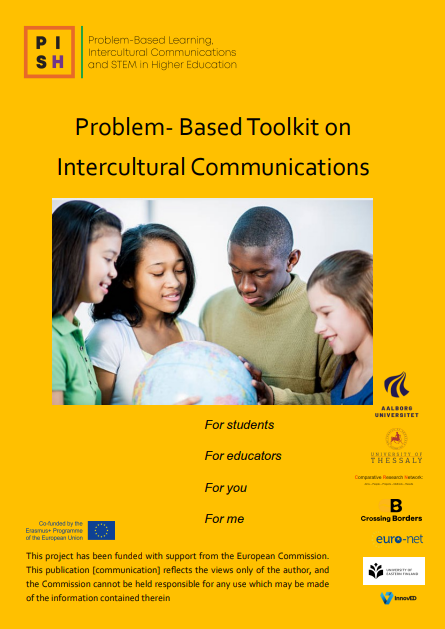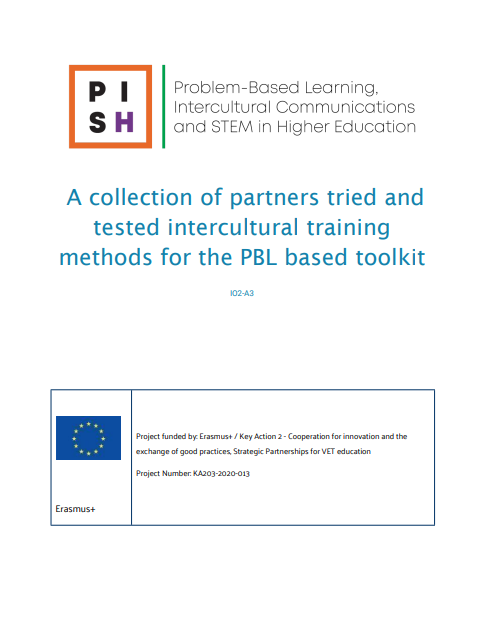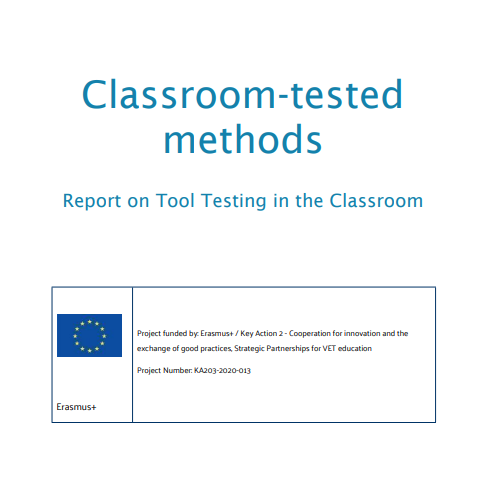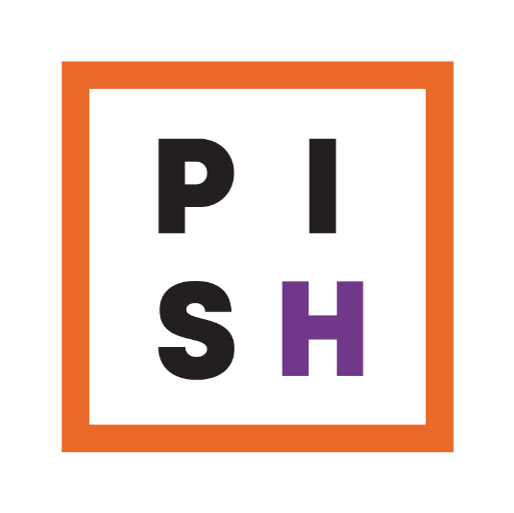As the world faces significant challenges related to the environment and sustainability, it is imperative for individuals from diverse backgrounds and cultures to collaborate in finding solutions. Science, Technology, Engineering, and Mathematics (STEM) graduates play a crucial role in tackling these global issues within multicultural organizations. However, many Higher Education Institutions (HEIs) primarily focus on developing students’ professional capacity, often neglecting the essential intercultural communication skills necessary for effective collaboration. This paper introduces the PISH project, which aims to enhance intercultural communication coaching skills among HEI teachers in a peer-to-peer learning environment, specifically catering to STEM students. By equipping teachers with methodologies, exercises, games, and tools, PISH aims to foster open-mindedness, cultural awareness, sensitivity, and intelligence among students, enabling frictionless collaboration and learning.
Objective:
The primary objective of the PISH project is to address the intercultural communication needs of STEM students in HEIs by enhancing the coaching skills and competences of teachers in a Problem-Based Learning (PBL) environment. The project focuses on providing teachers with the necessary knowledge, methodologies, and tools to support diverse student groups, consisting of both local and foreign students. Through this approach, the project aims to foster cultural intelligence, awareness, and sensitivity among students, promoting seamless collaboration and learning.
Methodology and Activities:
The project consists of three phases: the preparatory phase (IO1), the development phase (IO2 and IO3), and the evaluation phase. The preparatory phase contextualizes intercultural communication within the project’s scope, drawing inspiration from design thinking methodology. This involves empathizing, defining, ideation, prototyping/development, and testing. Empathizing is achieved through country studies and focus group interviews with HEI teachers and students. The defining phase analyzes the gathered observations and trends, guiding the subsequent ideation stage where ideas for project deliverables are generated. The prototyping and development phase involves creating the project deliverables, while the evaluation phase includes workshops and multiplier events to test and refine the outputs based on feedback.
Results:
The PISH project aims to provide the following outcomes:
A Library of best practices on intercultural communication (IO1)
A PBL-Based Toolkit on Intercultural Communications (IO2)
A PBL-based Intercultural Communications Online platform (IO3)
These resources empower teachers with tools to identify and address problems related to intercultural learning in a PBL environment, facilitating effective communication and collaboration among students.
Impact:
The PISH project contributes to inclusiveness in learning activities within HEIs. By integrating intercultural competence development into the learning process, it prepares students for future careers and effective civic participation in solving global issues. Additionally, PISH promotes lifelong learning and competence development for HEI teachers, ensuring they possess the necessary skills to guide students in intercultural communication. Ultimately, the project aims to provide solutions to environmental challenges by fostering inclusive learning environments and promoting intercultural understanding and collaboration among STEM students.
The PISH project’s approach to addressing the intercultural dimension of problem-based learning in higher education is a significant step towards fostering inclusive learning environments and equipping STEM students with essential intercultural communication skills. By enhancing the coaching skills and competences of HEI teachers, the project aims to bridge the cultural barriers that hinder effective communication and collaboration among students.
The project’s methodology demonstrates a comprehensive understanding of the challenges and complexities involved in promoting intercultural communication in a peer-to-peer learning environment. The use of design thinking methodology, including empathizing, defining, ideation, prototyping/development, and testing, ensures a systematic and iterative approach to developing the project’s deliverables. The inclusion of country studies and focus group interviews with HEI teachers and students enhances the project’s validity and relevance.
The identified results, including a Library of best practices on intercultural communication, a PBL-Based Toolkit on Intercultural Communications, and a PBL-based Intercultural Communications Online platform, provide teachers with valuable resources to support intercultural learning in the classroom. These tools can help address the challenges associated with cultural differences, promote cultural intelligence, and create a conducive environment for effective peer collaboration.
The impact of the PISH project is significant, as it promotes inclusiveness and prepares students for future careers in multicultural organizations focused on solving global challenges. By incorporating intercultural competence development as an integral aspect of the learning process, the project aims to equip students with the necessary skills to navigate cultural differences, communicate effectively, and contribute valuable insights to diverse teams.
However, it is essential to acknowledge that addressing intercultural communication solely through the enhancement of teachers’ coaching skills may have limitations. While teachers play a crucial role in guiding and facilitating learning, student engagement and active participation are equally vital. It is necessary to ensure that students are actively involved in the learning process, providing opportunities for them to interact, collaborate, and learn from each other across cultural boundaries.
Furthermore, sustaining the impact of the project beyond its duration is another critical aspect to consider. Engaging with NGOs, policy makers, and relevant associations to institutionalize the project outcomes in HEIs is a commendable step. However, long-term commitment from educational institutions, integration of intercultural communication into the curriculum, and ongoing support for teachers and students are crucial for the sustained development of intercultural competence.
In conclusion, while the PISH project’s approach is commendable and addresses the intercultural communication needs of STEM students in higher education, it is important to continuously evaluate its effectiveness and adapt strategies as needed. Emphasizing student engagement, ensuring long-term institutional support, and fostering a holistic approach to intercultural learning will contribute to the project’s success in preparing students for the multicultural challenges of the future.










